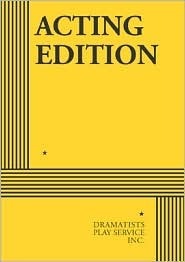What do you think?
Rate this book


72 pages, Paperback
First published November 30, 2007
HELEN: I can't watch this. It's wrong.Later, Helen is able to rationalize hating the car Jerry buys for Matt because it's German and she hasn't forgiven them for the Holocaust yet. She even finds a way to blame Matt, indirectly, for their (presumably black) maid's lack of education and status. She's right, of course; but as Matt explains, "I'm a high school senior. I'm not responsible for our maid's illiteracy." Grant manages a shrewd and subtle examination of social responsibility and its constant companion, hypocrisy, that gives his play real teeth.
MATT: It's hilarious.
HELEN: It's not hilarious. It's wrong. Half those kids are going to be killed tomorrow and he's telling jokes.
MATT: He's a comedian.
HELEN: The Smothers Brothers are comedians. He's a company man.